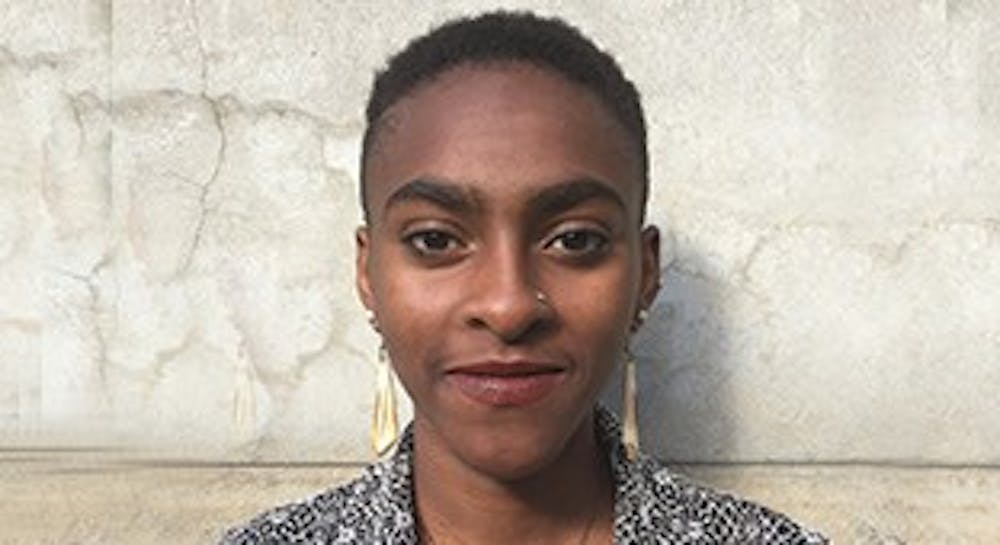“Black life is not lived in the world that the world lives in, but it is lived underground, in outer space,” Jared Sexton said.
Afro-pessimist thinkers — Frank Wilderson (who will be speaking at the Campus Y on Oct. 21), Saidiya Hartman and Sexton, to name a few — theorize about the fatal positionality of the black self. To be black is to live a stillborn life of social death. To exist as a sentient being but to be written out of modernity’s social codes and society’s conception of subjecthood. Instead Blackness is a perpetual state of objecthood — a condition that positions black bodies as fungible, a commodity, free to be traded, exploited and exchanged for monetary profit.
In social death, European colonial standards demand “civility” through the constant policing of our bodies. It “civilizes” our congregation — for if two or more of us are gathered, we are a riot. It “civilizes” our hair — for a curl pattern not 3B is unprofessional. It “civilizes” our tongues — for a grammar outside of prescriptivism is unintelligent.
Because of this, Black social life — in its death — is inherently resistant. One such way is in our linguistic performance. Though natally alienated from our mother tongues, Africans removed to the Americas have been forced to create new language. Afro-Carribeans call it “patwa” or “patois.” Afro-latinos/as call it creole. African-Americans call it African-American Vernacular English.
Slang, defined as “street language,” has historically been the in-group speech of the marginalized. It is a complex socio-linguistic swapping that incorporates cultural references, metaphors, oral traditions, mass media and euphemism, etc., into a complex vocabulary.
AAVE slang, though often rebuked as an unintelligent dialect, reflects the socio-political triumphs and anxieties of black people.
Slang is Black rhythm in verse, a poetic discourse of an exclusive code that is difficult for dominant culture to decode. As Black people do not occupy equal, horizontal alliance with non-Blacks, slang becomes a point of vertical engagement and lateral disruption. Its grammaticisms discomfort academics. Its references confuse white culture. Its elasticity binds Black people.



